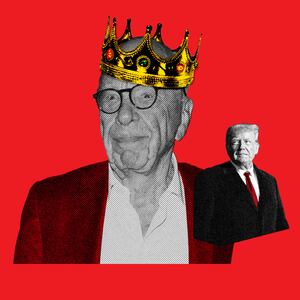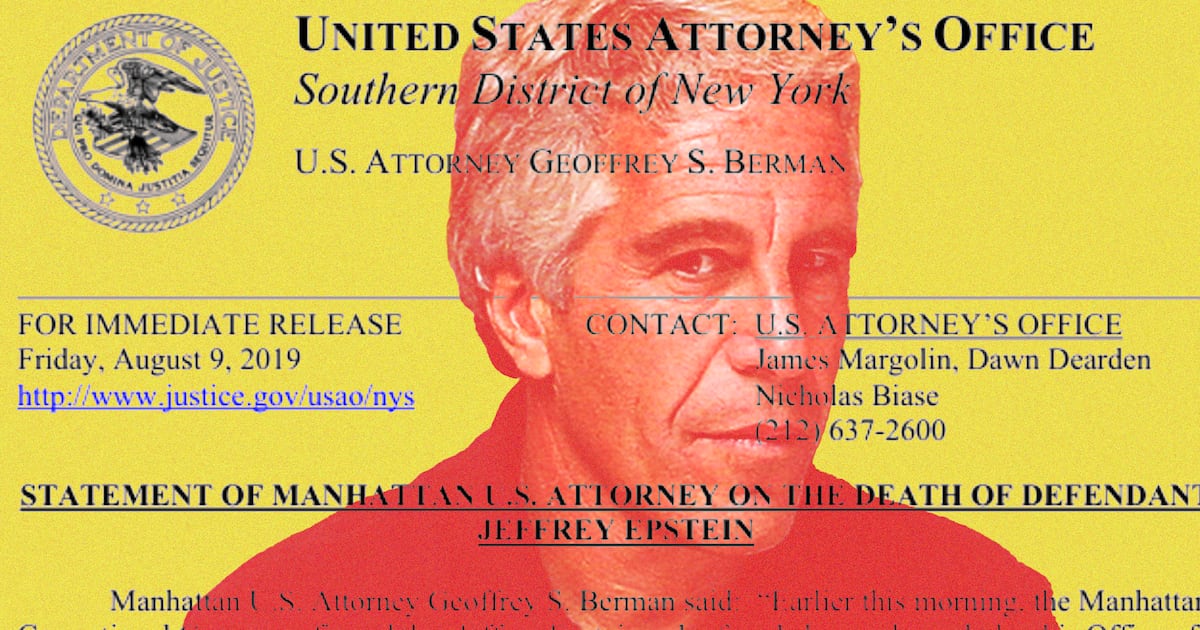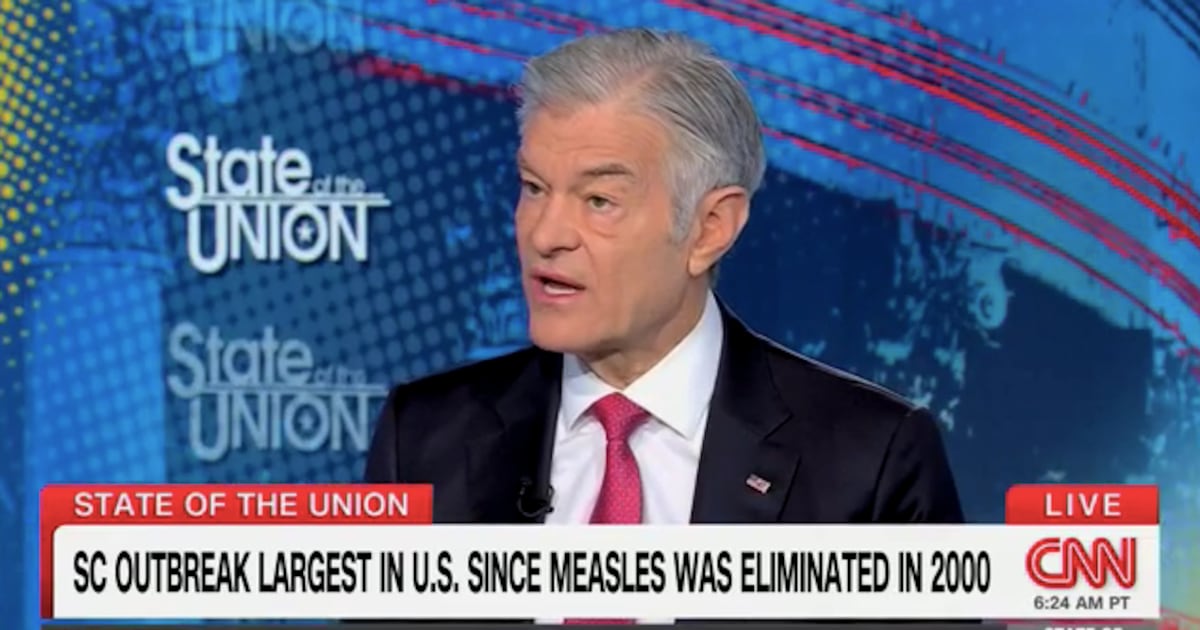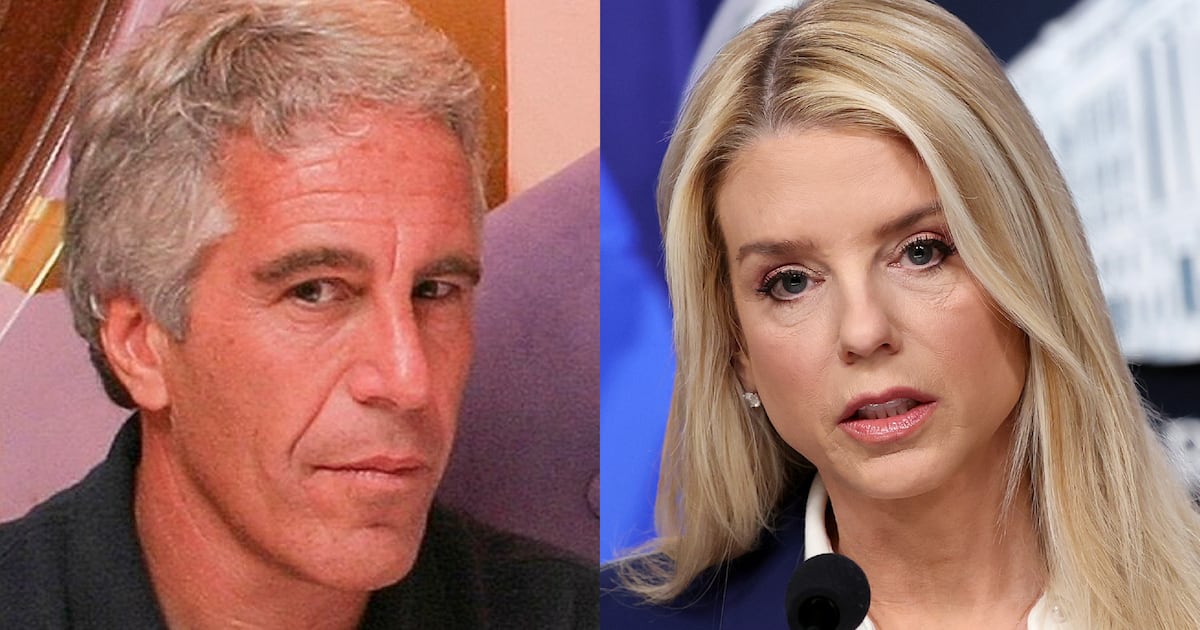And so Rupert Murdoch’s twilight as a media mogul begins. And the future succession after he goes is cast into doubt.
Murdoch, the man who until now always got what he wanted, has been told firmly he can’t have what he wanted. And buckled.
What he wanted—very badly—was to make whole again the global empire that he had built up over sixty years and that he was forced to break up a decade ago. But he failed to persuade the major investors and stockholders in the two halves of the business, Fox Corp and News Corp, to bend to his will and approve a merger.
The announcement Tuesday that he had capitulated is a highly significant reversal. As I reported when the deal was proposed, it was hard to find anyone who thought the merger made sense.
That was because it was basically a vanity exercise, not a rational business plan. At the age of 91, Murdoch wanted it so that he could consolidate all the family businesses under him and then hand them over to his chosen successor, his son Lachlan Murdoch.
One analyst told me when the deal was proposed, “Rupert doesn’t give a fuck about the stockholders. He just wants to have all the power back.”
In fact, stockholders in both companies decided—correctly, as it turned out—that the merger would diminish the value of their stock. Fox Corp, the powerhouse of the two, makes $14 billion a year—not simply due to Fox News, but by delivering news, sports, and entertainment to 208 local stations in the U.S., including 18 that it owns. News Corp’s jewel is Dow Jones, publisher of The Wall Street Journal, that has seen a huge rise in revenues as a result of adding more than 3 million digital-only subscribers to its print readership.
Nonetheless, Fox Corp stockholders thought that News Corp’s legacy newspaper business—including the notorious London tabloid, The Sun, on which the empire was founded—would be a drag on the merged corporation’s profits, while News Corp shareholders were very sniffy about being in the same corporate bed with Fox News, which they considered toxic, and would similarly suffer a loss in market value.
Enders Analysis, a highly regarded London-based media follower, warned that a similar merger of Viacom and CBS left the resulting Paramount Global worth $13 billion less than if the two had remained separate.
The ascendancy of the stockholders over one of the most powerful and driven of media moguls is a striking demonstration that Murdoch no longer enjoys the absolute power he once had. Peter Kreisky, chairman of Kreisky Media Associates, a veteran Murdoch watcher, says:
“The promise of the Murdoch magic is severely damaged. Stockholders refused to believe that Murdoch could turn a bad deal into a good one by sleight of his mogul’s hand. Reflecting his error and the views of his major investors, stocks in NewsCorp and Fox immediately rose on the news in after-hours trading.”
This setback will refocus attention on the succession issue. Although most analysts believe that Lachlan Murdoch is the chosen successor, this sudden demonstration of stockholder clout is a warning that however much a founding mogul believes that family members will rule forever, times have changed. Kreisky says:
“This reversal of fortune demonstrates the limited credibility of Lachlan compared to his father to successfully manage a diverse portfolio of media assets. He may have good ‘cred’ at Fox but shareholders don’t see it transferable to other key parts of the business. Lachlan’s future suddenly looks limited.
“Moreover, predators are taking a new look at what might now be up for grabs if enough money is dangled before the major investors and stockholders: Hence the rumors flying after the announcement of a potential bid for the Wall Street Journal by Bloomberg.”
News Corp has produced two highly successful chief executives, Robert Thomson, who runs Dow Jones in New York, and Rebekah Brooks, who runs News Corp in London. As The Daily Beast has reported, on the basis that the merger went through, Brooks was tipped to take over from Thomson, due to retire soon, and become supremo of the newspaper businesses.
There is a rich irony in that. Brooks was the editor of the tabloid News of the World, where the newsroom was addicted to phone hacking in the pursuit of scoops, a scandal that outraged Britain and eventually led to the closure of the newspaper in 2011 and the break-up of the empire into the two parts.
Not only did Brooks escape any blame for the hacking, she was swiftly promoted to run Murdoch’s London papers at a time when the tabloids began to be decimated by the rise of even more salacious and unruly websites and social media. Under Brooks, Murdoch’s two upmarket broadsheets, The Times and the Sunday Times, have become hugely profitable, while the remaining tabloid, The Sun, loses money and has yet to build a digital presence.
The editor of the Sunday Times, Emma Tucker, is moving from London—on the initiative of Brooks—to become editor of The Wall Street Journal, the paper’s first woman editor who arrives with a record of supporting fearless investigative journalism.
When all these changes were set in motion it was assumed that Murdoch’s merger would happen. Now it looks like the future leadership of the empire will be decided not by Murdoch but by investors and stockholders—and decided on deep executive talent, not birth. The contenders will make Logan Roy’s nasty brood in the HBO series Succession look like babies.








